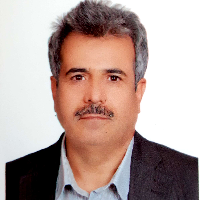Investigating the Improvement of Recurrent Forecasting of Singular Spectrum Analysis Method in Structural Time Series Models Using Data Filtration and Weighting Algorithm
The Singular Spectrum Analysis (SSA) method is a powerful non-parametric method in the field of time series analysis and has been considered due to its features such as no need to stationarity assumptions or a limit on the number of collected observations. The main purpose of the SSA method is to decompose time series into interpretable components such as trend, oscillating component, and unstructured noise. In recent years, continuous efforts have been made by researchers in various fields of research to improve this method, especially in the field of time series prediction. In this paper, a new method for improving the prediction of singular spectrum analysis using Kalman filter algorithm in structural models is introduced. Then, the performance of this method and some generalized methods of SSA are compared with the basic SSA using the root mean square error criterion. For this comparison, simulated data from structural models and real data of gas consumption in the UK have been used. The results of this study show that the newly introduced method is more accurate than other methods.
-
Interval shrinkage estimation of two-parameter exponential distribution with random censored data
Ali Soori, , Mehdi Jabbari Nooghabi *, Farshin Hormozinejad, Mohammadreza Ghalani
Journal of Mahani Mathematical Research, Winter and Spring 2025 -
Interval shrinkage estimation of process performance capability index in gamma distribution
*, Hedar Mokhdari, Masoud Yrmohhmadi
Journal of Mathematical Researches, -
Improving The Quality of Time Series Modeling and Forecasting Using Robust Multivariate Singular Spectrum Analysis
Tahere Amini, *, Ali Shadrokh, Mahdi Kalantari
Journal of Quality Engineering and Management, -
Improving recurrent forecasting in singular spectrum analysis using Kalman filter algorithm
*, , Hossein Hassani
Journal of Statistical Modelling: Theory and Applications, Winter and Spring 2022



